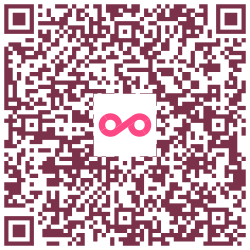- Wissenschaft
Meet the Researcher
Jacques Spedener
Picture this: you are listening to the radio, and a new pop song plays. It is mostly in English, but you catch snippets of Spanish. The next song sounds like it is in English too, yet you hear significant portions in Korean. Later, you chat with a friend in Luxembourgish. As native Luxembourgers, you both seamlessly mix in German proverbs (e.g. Übung macht den Meister), English slang (e.g. Dude, Bro), and French words (e.g. Pois Chiche) whenever a Luxembourgish term isn’t immediately recalled, using the equivalent from another language to keep the conversation flowing smoothly. Despite this linguistic blend, you understand each other perfectly, but you might start to wonder: Is this still Luxembourgish? Why is it common to say, “Ech geheien eppes an …” (I throw something in …) d’Poubelle (French for trash can) or d’Dreckskëscht (Luxembourgish for trash can), but not de Mülleimer (German for trash can)?
Luxembourg’s multilingualism and growing multiculturalism have led its citizens to use multiple languages within a single conversation, a phenomenon commonly known as “code-switching”. Code refers to the different languages or dialects in a speaker’s repertoire. As a native Luxembourger with a background in English studies, I noticed my own increasing use of English within Luxembourgish. Observing those around me, I also noticed that this practice was widespread, especially among younger generations, incorporating various languages through so called loan words (e.g. App, Manager), proverbs (e.g. Wer ohne Fehler ist, werfe den ersten Stein), quotations, or technical terms (e.g. Secteur public, Fonctionnaire). Interestingly, while code-switching into French or German is often accepted, incorporating English is sometimes viewed as “wrong” or “incorrect”, especially by older Luxembourgish speakers.

In my research, I aim to explore these practices and attitudes towards code-switching. Do Luxembourgish speakers recognize code-switching when it happens? Can we distinguish between code-switching and what is simply considered part of Luxembourgish? Why is switching into certain languages more acceptable than others? Who decides which words or expressions are integrated into Luxembourgish, and how far back do we trace the origins of a word to consider it Luxembourgish? My research not only identifies the presence of code-switching but also delves into the reasons behind it and the challenges in defining its boundaries within Luxembourgish. Through my work, I aim to show that code-switching is a common phenomenon and a sign of a living, dynamic language. It is not an indication of a language dying out but rather of multilingual speakers making full use of their linguistic repertoire.
Beyond understanding perceptions, my research also incorporates a computational linguistic study. With the rise of technological and AI-powered tools, I am examining how well code-switching can be detected in Luxembourgish and how these tools can be improved. My primary dataset comprises anonymous user comments from the RTL news site, focusing on written code-switching. However, this task is not as simple. One complexity that arises is that many Luxembourgish speakers have never formally learned to write in Luxembourgish. Consequently, the way Luxembourgish is written commonly differs from one person to the next. This variability presents a unique challenge when working with computational tools to automatically detect code-switching in Luxembourgish texts.
As I approach my third year as a PhD researcher, I am preparing a large-scale annotation study of RTL.lu comments. For this purpose, I am currently looking for Luxembourgish speakers to highlight instances of code-switching in written Luxembourgish. Upon completing the annotation task, participants can also join online interviews to discuss their perceptions of code-switching in Luxembourgish. My research includes participants of all ages, aiming to also give a voice to younger generations who often go unheard regarding the analysis of the Luxembourgish language. Anyone who would like to participate can contact me directly by email (jacques.spedener@uni.lu).
Together with my participants, we can uncover the inherent multilingual traits of the Luxembourgish language, which aids in deepening the understanding of its dynamic multilingualism. With this research, I aim to enhance the representation of Luxembourgish in the digital age and contribute to the development of new technological tools for the language, such as improved spell-checkers, language models, or chatbots. Additionally, I hope to raise awareness among Luxembourgers about the complexity and intricacy of code-switching, highlighting it as an integral part of the linguistic practice of most Luxembourgish speakers in the country.
Jacques Spedener received a BA in English Studies and an MA in Learning and Communication in Multilingual and Multicultural Contexts from the University of Luxembourg. He spent six months at Waseda University in Tokyo, where he developed a deep fascination for Japanese culture and language. He is also working as a freelance artist, photographer and painter while currently pursuing a PhD in Computational Sociolinguistics at the University of Luxembourg, focusing on his project titled “Automatic Detection, Prediction, and Individual Perception of Code-switching in Written Luxembourgish”.
Als partizipative Debattenzeitschrift und Diskussionsplattform, treten wir für den freien Zugang zu unseren Veröffentlichungen ein, sind jedoch als Verein ohne Gewinnzweck (ASBL) auf Unterstützung angewiesen.
Sie können uns auf direktem Wege eine kleine Spende über folgenden Code zukommen lassen, für größere Unterstützung, schauen Sie doch gerne in der passenden Rubrik vorbei. Wir freuen uns über Ihre Spende!
